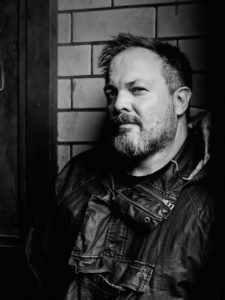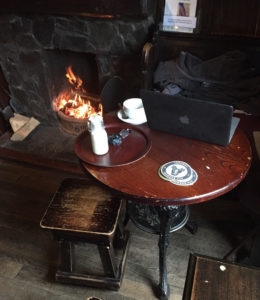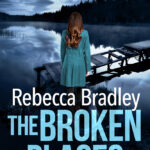Today I”m pleased to welcome crime writer and friend, Ian Patrick to the blog to talk about his first draft process.
 Educated in Nottingham, Ian left school at sixteen. After three years in the Civil Service he moved to London for a career in the Metropolitan Police. He spent twenty-seven years as a police officer, the majority as a detective within the Specialist Operations Command. A career in policing is a career in writing. Ian has been used to carrying a book and pen and making notes. Now retired, the need to write didn’t leave and evolved into fiction.
Educated in Nottingham, Ian left school at sixteen. After three years in the Civil Service he moved to London for a career in the Metropolitan Police. He spent twenty-seven years as a police officer, the majority as a detective within the Specialist Operations Command. A career in policing is a career in writing. Ian has been used to carrying a book and pen and making notes. Now retired, the need to write didn’t leave and evolved into fiction.
Rubicon is his debut novel published by Fahrenheit Press. He now lives in rural Scotland where he divides his time between family, writing, reading and photography.
When you decide to write something new, what is the first thing you do?
Fire up Scrivener and open a new manuscript. As a debut writer I decided to use Scrivener based on your advice! It works well for me and I have a second book down using the same system. As a newly published writer I can’t say I have much of a system yet!
Do you have a set routine approaching it?
I treat the writing process like an investigation. I see what I have in terms of idea. That could simply be a start and an ending. From this I work through, in order, and watch the story unfold. This way I can close doors and open others where the story requires it. I let the characters evolve and with that the story unfolds.
Pen and paper or straight to the keyboard?
I make notes using Dictaphone, iPhone, notebooks, and any other scraps that come to hand. Very disorganized here! I eventually collate them all and use Scrivener to drop them all in a folder.
How important is research to you?
I write crime having spent twenty-eight years investigating it. Research is still vital though as procedure changes and technology and forensic science progresses. I know London pretty well so setting is easier for me. I will use Google maps too to make sure I’m as accurate as possible. As a reader I’m looking for a good read and unless something is glaringly obvious I rarely pick up on research ambiguity. It’s fiction for a reason.
How do you go about researching?
I use news feeds for research. You get good crime stats from this and ideas for future work. Social media is also a good place to look. As my time away from London increases I will no doubt have to pay the occasional visit to remind myself of the feel of the lace as well as locations I choose to use.
How do you store everything; ideas, research, images that catch your eye?
I use Scrivener folders and this keeps everything in one place and is easily accessible. It links to the web too so pages can be found easily. It also stores images so this is another bonus. I will always backup to the cloud when writing. As a photographer I do this too.
Tell us how that first draft takes shape?
With Rubicon it started with an idea where I knew the beginning and the end. From there I had to fill in the blanks. I like the story to evolve in sequence as an investigation does. With any crime you have a start but you don’t know the end so you have to work things out in a logical sequence and deal with whatever is thrown up as the investigation/story unfolds. Even when you have a crime with a suspect at the scene holding a smoking gun, you can’t assume he or she is the guilty party. To assume makes an ass out of u and me; as I was always taught.
Are there any rituals you have to do or items you must have with you while writing that draft?
A laptop. I can write anywhere and that comes from policing. You have to write under pressure at times and in weird environments! I have no rituals or any other lucky charms to get me through other than coffee!
Does the outside world exist or are you lost to us for a period of time as the magic works?
Definitely lost whilst the words flow. I get immersed in the scene and love it.
 What does your workspace look like?
What does your workspace look like?
Mine varies. It has been the back room of a village hall, whilst my youngest was at playgroup, to  a local Inn that took pity on me writing in a drafty room and invited me to write there. I wasn’t complaining! I finally have a study at home so see myself spending more time here to write. I was also using my local library for a time. When we were living down south I was using the University of Hertfordshire’s Library. This was a great place to write.
a local Inn that took pity on me writing in a drafty room and invited me to write there. I wasn’t complaining! I finally have a study at home so see myself spending more time here to write. I was also using my local library for a time. When we were living down south I was using the University of Hertfordshire’s Library. This was a great place to write.
Edit as you go or just keep getting words out?
Just write. Editing is a totally different writing experience, for me, and I need to get the basis of the story down first. Once the framework is there I can see glaring plot holes or continuity mistakes easier.
I see many writers counting words in a day. Word counter or other method of keeping track of progression?
Write each day. I try and achieve this but it doesn’t always work that way due to work/ family balance. I don’t like being a slave to a word count. Just write what I want to write and don’t force the process.
So, that first draft is down. Roughly how long did it take? And what shape is it in?
It takes me six months to complete the first draft then I leave it for about a month. When I come back to edit I’m seeing it with fresh eyes.
In what format do you like to read it through, ereader, paper or the computer screen?
For Rubicon I used them all. I edit on computer then send to ereader. I also print the whole manuscript off. Jane Issac and Ian Rankin recommended this method and it works. You get a different perspective reading on paper and it emulates the paperback book experience more.
What happens now that first draft is done?
Edit until I’m sick of seeing it! Once I’ve had enough of it I know it’s ready.
Thanks for having me here. I love this series as well as your police procedural stuff. A great privilege to be invited.
Thanks for digging into the depths of the first draft. It’s been a pleasure having you.
You can find Ian on Twitter | Amazon ebook | Amazon paperback
Rubicon
![]() Two cops, both on different sides of the law – both with the same gangland boss in their sights.
Two cops, both on different sides of the law – both with the same gangland boss in their sights.
Sam Batford is a corrupt undercover officer with the Metropolitan Police who will stop at nothing to get his hands on fearsome crime-lord Vincenzo Guardino’s drug supply.
DCI Klara Winter runs a team on the National Crime Agency, she’s also chasing down Guardino, but unlike Sam Batford she’s determined to bring the gangster to justice and get his drugs off the streets.
Set in a time of austerity and police cuts where opportunities for corruption are rife, Rubicon is a tense, dark thriller that is definitely not for the faint hearted.



Thanks so much for having me here. Never thought I would! Have a great weekend.
This is very much practical, well organized, enjoyable to read and explore to the highest standards.
Thanks for taking the time to read it. Ian
I admire those who can write anywhere.
It’s fiction for a reason. I like that attitude!
Thanks for taking the time to read it, Alex. Much appreciated. Ian
This is really interesting – thanks, both. I’ve been wondering about Scrivener, and it’s good to know it works for you. And I love the idea of treating a new novel like an investigation. I never thought about it like that, but it really makes sense. Thanks for sharing your perspective.
Thanks Margot. Glad you found the piece of use. Best wishes, Ian.
Thanks for all the comments and taking time to read the post. Writing is a personal journey. I’d encourage anyone who has the desire to try it to just get on and put one word after the other. Don’t sweat the process. Let it evolve in your own way. Use advice that is useful to you and discard what isn’t.